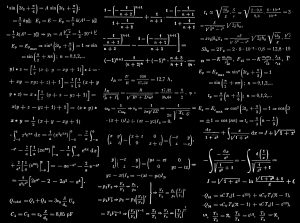How Abacus Helps Kids with Dyslexia and Dyscalculia Learn Math

Are you a parent concerned about your child’s struggles with mathematics? Do you have a child with dyslexia or dyscalculia who finds it challenging to grasp mathematical concepts? If so, you’re not alone. Many children face difficulties with math, but there is a tool that can make a significant difference in their learning journey: the abacus.
Abacus learning is an innovative approach that has been proven to support children with dyslexia and dyscalculia in mastering math. By engaging multiple senses and providing a tangible representation of numbers, the abacus unlocks the potential of these children, enabling them to develop strong mathematical skills and overcome their learning challenges. In this article, we will explore how abacus learning benefits children with dyslexia and dyscalculia and provide practical strategies for math intervention. Let’s dive in!
The Power of Abacus Learning
Abacus learning is more than just a tool; it is a powerful methodology that taps into the innate abilities of children. By integrating visual, tactile, and kinesthetic modalities, the abacus provides a multisensory learning experience that resonates with children who have dyslexia or dyscalculia.
One of the key benefits of abacus learning is its ability to help children visualize mathematical concepts. Dyslexic and dyscalculic children often struggle with abstract ideas, making it challenging for them to understand and apply mathematical principles. The abacus bridges this gap by offering a concrete representation of numbers and operations. Through hands-on manipulation of beads, children can see and touch the numbers, helping them grasp the concepts more effectively.
Additionally, the structured nature of the abacus allows children to break down complex problems into smaller, manageable steps. This fosters logical thinking and problem-solving skills, which are essential for mathematical proficiency. By simplifying math operations and providing consistent practice, the abacus helps children overcome their fear of math, boosting their confidence and self-belief.
Cognitive Development through Abacus Learning
Abacus learning not only supports mathematical skill development but also enhances cognitive abilities in children with dyslexia and dyscalculia. Using the abacus stimulates memory, concentration, and executive functions. It requires simultaneous use of both hands, eyes, and logical thinking, effectively engaging different parts of the brain.
Research has shown that children who engage in abacus learning demonstrate improved attention span and focus. The repetitive nature of using the abacus fosters concentration skills, which can be particularly challenging for children with dyslexia or dyscalculia. As they practice mental calculations using the abacus, their working memory is strengthened, allowing them to retain and recall information more efficiently.
Moreover, manipulating beads on the abacus improves hand-eye coordination and fine motor skills. These areas of difficulty for children with learning disabilities can significantly impact their overall academic performance. Abacus learning provides a unique opportunity to develop these skills in a fun and interactive way.
Math Intervention Strategies with Abacus Learning
When it comes to supporting children with dyslexia or dyscalculia in mathematics, intervention strategies play a crucial role. Abacus learning offers a range of effective strategies that can be implemented both at home and in educational settings.
Introduction to the Abacus: Start by introducing the abacus as a tool for mathematical calculations. Teach your child how to use the beads to represent numbers and perform basic operations like addition, subtraction, multiplication, and division. Make it a fun and engaging activity to pique their interest.
Visualizing Math Problems: Encourage your child to visualize math problems using the abacus. Break down complex calculations into smaller steps and guide them through the process. This will help them develop a deeper understanding of mathematical concepts and improve problem-solving skills.
Consistent Practice: Consistency is key when it comes to abacus learning. Set aside regular practice sessions to reinforce mathematical skills. Gradually increase the complexity of the problems to challenge your child and keep them engaged.
Abacus Games: Incorporate games into your child’s learning routine to make it more enjoyable. There are various abacus games available that focus on different mathematical skills, such as number recognition, mental calculation, and problem-solving. These games provide a playful environment for learning and reinforce concepts in a fun way.
Collaborative Learning: Consider enrolling your child in an abacus learning program or joining a study group where they can interact with peers who are also learning math using the abacus. Collaborative learning enhances motivation, encourages active participation, and provides opportunities for peer support.
Benefits of Abacus Learning for Dyslexic and Dyscalculic Children
The benefits of abacus learning extend beyond mathematical proficiency and cognitive development. Here are some additional advantages for dyslexic and dyscalculic children:
Building Self-Confidence: By mastering math skills through abacus learning, children gain confidence in their abilities. They realize that they can excel in mathematics and overcome their learning challenges.
Improved Academic Performance: Abacus learning has been shown to enhance overall academic performance. Children who engage in abacus learning often perform significantly better in math and reading at school, giving them a competitive edge over their peers.
Enhanced Numerical Ability: Abacus learning strengthens numerical ability, enabling children to perform calculations quickly and accurately. This skill is valuable not only in math but also in various real-life situations that require mental calculation.
Long-Term Skill Development: The skills developed through abacus learning, such as concentration, logical thinking, and problem-solving, have long-term benefits beyond mathematics. These skills are transferable to other academic subjects and everyday life.
Here’s a table that highlights how the abacus can help children with dyslexia and dyscalculia learn math.
|
Benefit |
Description |
Impact on Dyslexia/Dyscalculia |
|---|---|---|
|
Multisensory Learning |
Engages visual, tactile, and kinesthetic senses |
Enhances understanding by compensating for difficulties with abstract symbols |
|
Visualization of Concepts |
Provides concrete representation of numbers and operations |
Helps overcome challenges with abstract ideas |
|
Breaking Down Problems |
Simplifies complex calculations into manageable steps |
Fosters logical thinking and problem-solving skills |
|
Confidence Building |
Simplifies math operations and encourages consistent practice |
Boosts confidence and reduces fear of math |
|
Cognitive Development |
Stimulates memory, concentration, and executive functions |
Enhances overall brain development and cognitive abilities |
|
Improved Fine Motor Skills |
Enhances hand-eye coordination and dexterity |
Develops physical skills while learning math |
|
Reducing Math Phobia |
Makes math engaging and fun |
Encourages active participation and reduces anxiety |
Summing Up
In conclusion, abacus learning is a powerful tool for supporting children with dyslexia and dyscalculia in mastering mathematics. By providing a multisensory learning experience, visualizing mathematical concepts, breaking down complex problems, boosting confidence, enhancing cognitive development, improving fine motor skills, and eliminating math phobia, the abacus empowers children to overcome their challenges and excel in math.
If you’re looking for an effective math intervention strategy for your child with dyslexia or dyscalculia, consider incorporating abacus learning into their educational journey. The structured levels and proven track record of abacus programs provide a solid foundation for mathematical skill development and overall cognitive growth.
SIP Abacus India offers world-class skill development programs that unlock the mental potential of children through fun learning methodologies. Their abacus-based curriculum focuses on developing strong mental math abilities, improving concentration and attention span, boosting overall intelligence, and enhancing self-esteem. Studies have shown that children who complete the SIP Abacus program perform significantly better in math and reading at school.
Empower your child with the transformative power of abacus learning and witness their mathematical potential unfold. Start their adventure today!



